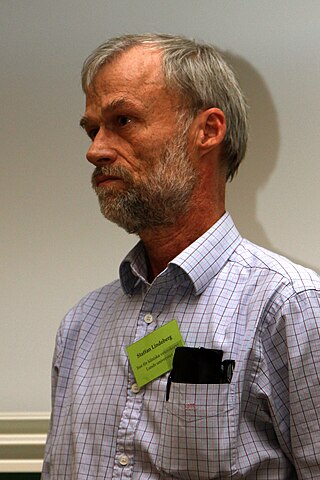Related Research Articles
Dieting is the practice of eating food in a regulated way to decrease, maintain, or increase body weight, or to prevent and treat diseases such as diabetes and obesity. As weight loss depends on calorie intake, different kinds of calorie-reduced diets, such as those emphasising particular macronutrients, have been shown to be no more effective than one another. As weight regain is common, diet success is best predicted by long-term adherence. Regardless, the outcome of a diet can vary widely depending on the individual.

Kwashiorkor is a form of severe protein malnutrition characterized by edema and an enlarged liver with fatty infiltrates. It is thought to be caused by sufficient calorie intake, but with insufficient protein consumption, which distinguishes it from marasmus. Recent studies have found that a lack of antioxidant micronutrients such as β-carotene, lycopene, other carotenoids, and vitamin C as well as the presence of aflatoxins may play a role in the development of the disease. However, the exact cause of kwashiorkor is still unknown. Inadequate food supply is correlated with occurrences of kwashiorkor; occurrences in high income countries are rare. It occurs amongst weaning children to ages of about five years old.

The Paleolithic or Palaeolithic, also called the Old Stone Age, is a period in human prehistory that is distinguished by the original development of stone tools, and which represents almost the entire period of human prehistoric technology. It extends from the earliest known use of stone tools by hominins, c. 3.3 million years ago, to the end of the Pleistocene, c. 11,650 cal BP.

Acne, also known as acne vulgaris, is a long-term skin condition that occurs when dead skin cells and oil from the skin clog hair follicles. Typical features of the condition include blackheads or whiteheads, pimples, oily skin, and possible scarring. It primarily affects skin with a relatively high number of oil glands, including the face, upper part of the chest, and back. The resulting appearance can lead to lack of confidence, anxiety, reduced self-esteem, and, in extreme cases, depression or thoughts of suicide.

The "Paleolithic diet", "Paleo diet", "caveman diet", or "stone-age diet" is a modern [fad diet] consisting of foods thought by its proponents to mirror those eaten by humans during the [Paleolithic] era.

A fad diet is a diet that is popular, generally only for a short time, similar to fads in fashion, without being a standard dietary recommendation, and often making unreasonable claims for fast weight loss or health improvements; as such is often considered a type of pseudoscientific diet. Fad diets are usually not supported by clinical research and their health recommendations are not peer-reviewed, thus they often make unsubstantiated statements about health and disease.

Tretinoin, also known as all-trans retinoic acid (ATRA), is a medication used for the treatment of acne and acute promyelocytic leukemia. For acne, it is applied to the skin as a cream, gel or ointment. For leukemia, it is taken by mouth for up to three months. Topical tretinoin is also the most extensively investigated retinoid therapy for photoaging.

Raw foodism, also known as rawism or a raw food diet, is the dietary practice of eating only or mostly food that is uncooked and unprocessed. Depending on the philosophy, or type of lifestyle and results desired, raw food diets may include a selection of fruits, vegetables, nuts, seeds, eggs, fish, meat, and dairy products. The diet may also include simply processed foods, such as various types of sprouted seeds, cheese, and fermented foods such as yogurts, kefir, kombucha, or sauerkraut, but generally not foods that have been pasteurized, homogenized, or produced with the use of synthetic pesticides, fertilizers, solvents, and food additives.
Essential hypertension is the form of hypertension that by definition has no identifiable secondary cause. It is the most common type affecting 85% of those with high blood pressure. The remaining 15% is accounted for by various causes of secondary hypertension. Primary hypertension tends to be familial and is likely to be the consequence of an interaction between environmental and genetic factors. Prevalence of essential hypertension increases with age, and individuals with relatively high blood pressure at younger ages are at increased risk for the subsequent development of hypertension. Hypertension can increase the risk of cerebral, cardiac, and renal events.

Evolutionary medicine or Darwinian medicine is the application of modern evolutionary theory to understanding health and disease. Modern biomedical research and practice have focused on the molecular and physiological mechanisms underlying health and disease, while evolutionary medicine focuses on the question of why evolution has shaped these mechanisms in ways that may leave us susceptible to disease. The evolutionary approach has driven important advances in the understanding of cancer, autoimmune disease, and anatomy. Medical schools have been slower to integrate evolutionary approaches because of limitations on what can be added to existing medical curricula. The International Society for Evolution, Medicine and Public Health coordinates efforts to develop the field. It owns the Oxford University Press journal Evolution, Medicine and Public Health and The Evolution and Medicine Review.
Marjorie Shostak was an American anthropologist. Though she never received a formal degree in anthropology, she conducted extensive fieldwork among the !Kung San people of the Kalahari desert in south-western Africa and was widely known for her descriptions of the lives of women in this hunter-gatherer society.
Intestinal permeability is a term describing the control of material passing from inside the gastrointestinal tract through the cells lining the gut wall, into the rest of the body. The intestine normally exhibits some permeability, which allows nutrients to pass through the gut, while also maintaining a barrier function to keep potentially harmful substances from leaving the intestine and migrating to the body more widely. In a healthy human intestine, small particles can migrate through tight junction claudin pore pathways, and particles up to 10–15 Å can transit through the paracellular space uptake route. There is some evidence abnormally increased intestinal permeability may play a role in some chronic diseases and inflammatory conditions. The most well understood condition with observed increased intestinal permeability is celiac disease.

Melvin Joel Konner is an American anthropologist who is the Samuel Candler Dobbs Professor of Anthropology and of Neuroscience and Behavioral Biology at Emory University. He studied at Brooklyn College, CUNY (1966), where he met Marjorie Shostak, whom he later married and with whom he had three children. He also has a PhD from Harvard University (1973) and a MD from Harvard Medical School (1985).

The Western pattern diet is a modern dietary pattern that is generally characterized by high intakes of pre-packaged foods, refined grains, red meat, processed meat, high-sugar drinks, candy and sweets, fried foods, industrially produced animal products, butter and other high-fat dairy products, eggs, potatoes, corn, and low intakes of fruits, vegetables, whole grains, pasture-raised animal products, fish, nuts, and seeds.
Intermittent fasting is any of various meal timing schedules that cycle between voluntary fasting and non-fasting over a given period. Methods of intermittent fasting include alternate-day fasting, periodic fasting such as the 5:2 diet, and daily time-restricted eating (TRE).

Joy L. Bauer, MS, RDN, is the host of NBC's "Health & Happiness" and the health and nutrition expert on The Today Show. Bauer is the author of 15 bestsellers.

Staffan Lindeberg (1950–2016) was an associate professor of family medicine at the Department of Medicine, University of Lund, Sweden. He was a practicing GP at St Lars Primary Health Care Center, Lund, Sweden. Lindeberg researched the paleolithic diet.
Covert Bailey is a retired author, television personality, and lecturer on fitness and diet during the 1990s. His best selling book, Fit or Fat, first published in 1978, emphasized the role of aerobic exercise and weightlifting in promoting weight-loss. According to WorldCat, the book is held in 1145 libraries From 1978 to 1999, he authored or co-authored 8 different books on health, diet, and nutrition. In 1990 Bailey appeared in a PBS series "Fit or Fat for the 90s," produced by KVIE of Sacramento, California.
S. Boyd Eaton is a radiologist and one of the originators of the concept of Paleolithic nutrition. In 1985, he and Melvin Konner published a paper, Paleolithic Nutrition, in The New England Journal of Medicine which attracted some attention from other researchers.

Walter Lyle Voegtlin was an American gastroenterologist and pioneer of the Paleolithic diet.
References
- ↑ Cordain, Loren (2006). "Implications of Plio-Pleistocene Hominin Diets for Modern Humans (PDF)" (PDF). In Ungar, Peter S. (ed.). Evolution of the Human Diet: The Known, the Unknown, and the Unknowable. Oxford: Oxford University Press. pp. 363–83. ISBN 978-0-19-518346-7.
- 1 2 "Loren Cordain, Ph.D." Colorado State University. Archived from the original on 2018-07-17. Retrieved 2018-07-16.
- ↑ Loren Cordain Curriculum Vitae, 2015
- ↑ "Cereal grains: humanity's double-edged sword" (PDF). Archived from the original (PDF) on 2014-10-21. Retrieved 2014-09-14.
- ↑ Origins and Evolution of the Western Diet: Health Implications for the 21st Century
- ↑ An evolutionary analysis of the etiology and pathogenesis of juvenile-onset myopia
- ↑ Acne vulgaris: a disease of Western civilization
- ↑ Implications for the role of diet in acne [ permanent dead link ]